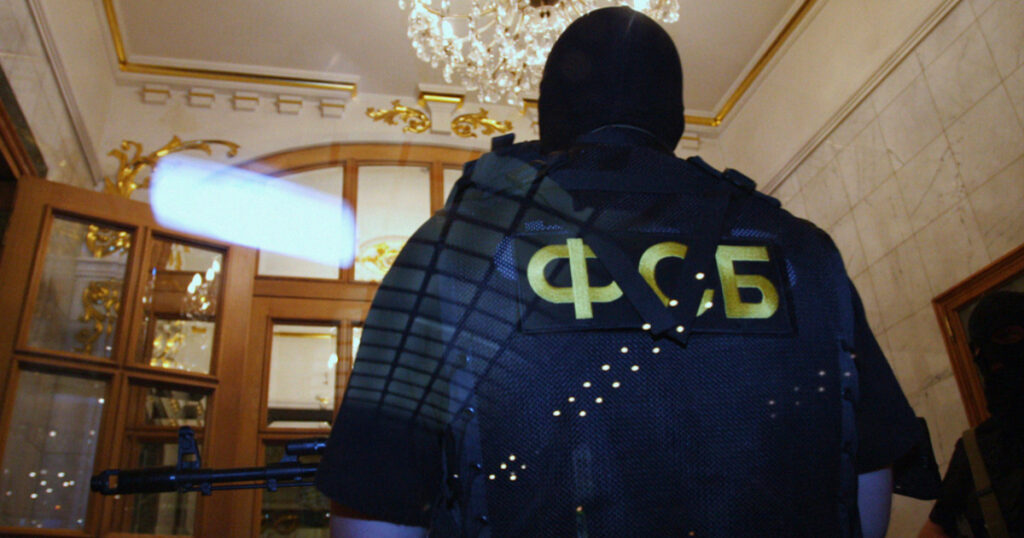
Top official implicated in corruption scam with FSB links
The Russian banking sector was rocked by the arrest of several high-ranking FSB officers last year who covered up a bribery scandal (as reported by The Bell and investigative outlet Proekt). This week, we learned of yet another player in the scam — the deputy head of state-owned Deposit Insurance Agency (DIA) that manages failing banks. An investigation by Meduza, VTimes and Proekt found that one of the agency’s senior managers set up a system that diverted funds to rescue struggling banks into the pockets of contractors (who paid kickbacks).

Сотрудники Федеральной службы безопасности РФ (ФСБ РФ) провели обыск в столичном ресторане “Прага”.
- When FSB Colonel Kirill Cherkalin was arrested in April 2019, a total of $180 million in cash and valuables was discovered at his properties. He was charged with fraud, but the numbers in the indictment were far below the $180 million. Cherkalin told investigators that most of the cash belonged to Valery Miroshnikov, deputy head of the DIA (this was reported by Open Media, which cited a source close to the investigation). Miroshnikov fled the country almost immediately after Cherkalin was arrested.
- Miroshnikov was a familiar figure in the financial world: he spent about 20 years in various roles at the DIA, always working with banks grappling with financial problems. Leading bankers spoke highly of his abilities in interviews with Meduza, VTimes and Proekt. “Miroshnikov really is a genius: I attended his meetings and he put together schemes that let everyone make money,” said one.
- The main source of income in this ‘business’ was banks whose licenses had been revoked. According to the rules, the DIA should have appointed temporary managers while the Central Bank provided funds to save the troubled institution.
- However, for the right to take part in this process and get access to funding, it appears clear that contractors paid bribes to the DIA. Two separate sources even told journalists that the usual amount for the kickback was 3 percent to 5 percent of what was required to save the bank. Negotiations were carried out face-to-face with Miroshnikov.
- People loyal to Miroshnikov were regularly appointed to manage failing banks, including his personal lawyers. These appointees received significant payouts, and the banks’ property was apparently sold off far below market value.
- DIA director Yury Isayev (Miroshnikov’s boss) did not usually take part in these negotiations. Although there was one case when he did: the rescue of Mosoblbank in which siphoned-off funds went to SMP Bank owned by Arkady Rotenberg, a personal friend of President Vladimir Putin. In total, $2.2 billion was allocated to save Mosoblbank. This process took place shortly after SMP Bank fell victim to a round of Western sanctions and suffered an outflow of investment.
Why the world should care
Investigations shed light on how the Russian economy really functions. The fact that the ‘stars’ of this particular show are long out-of-the-game does not mean, necessarily, that the system has changed. It just means that we do not know who is currently in their roles.



